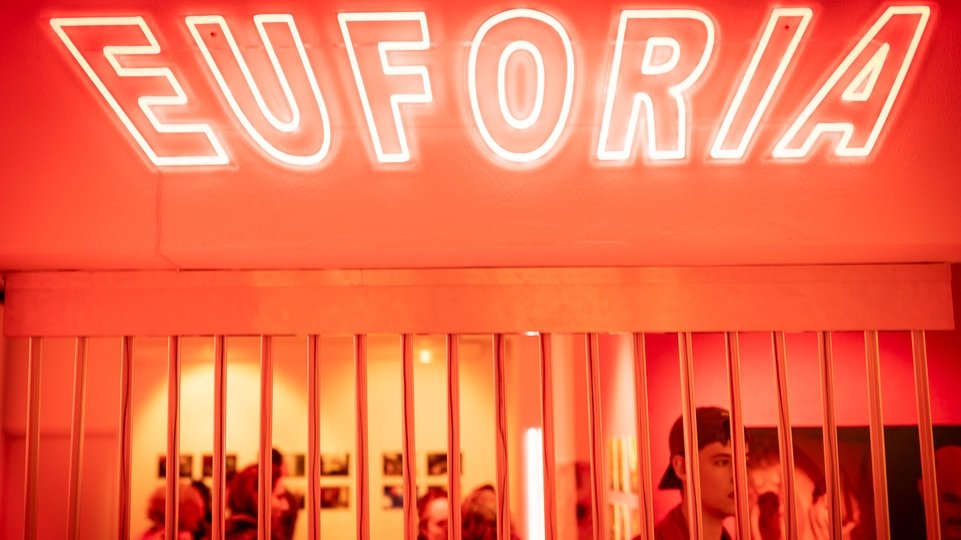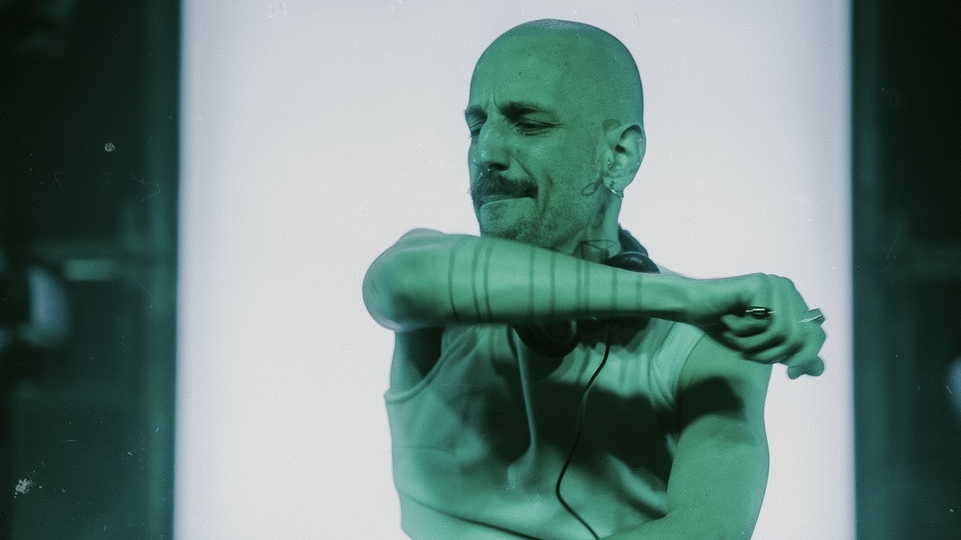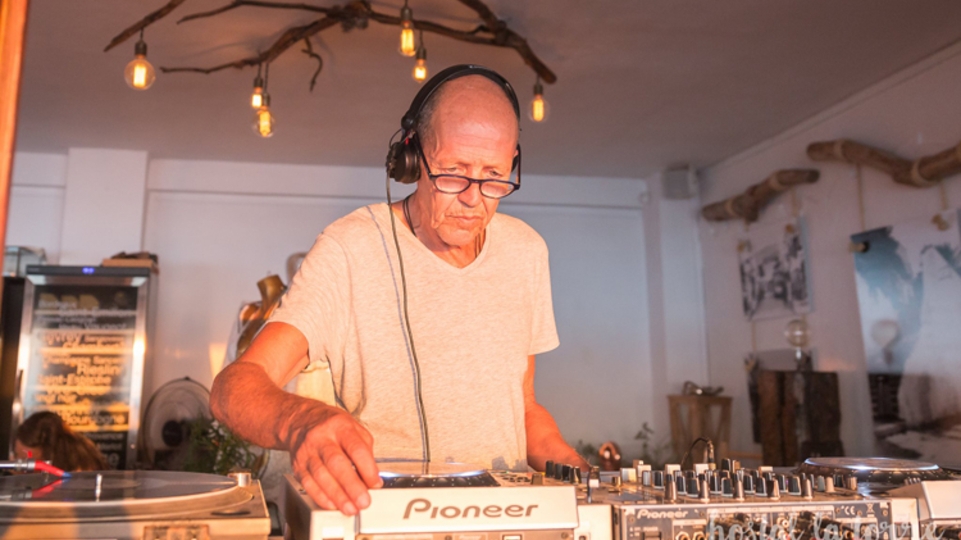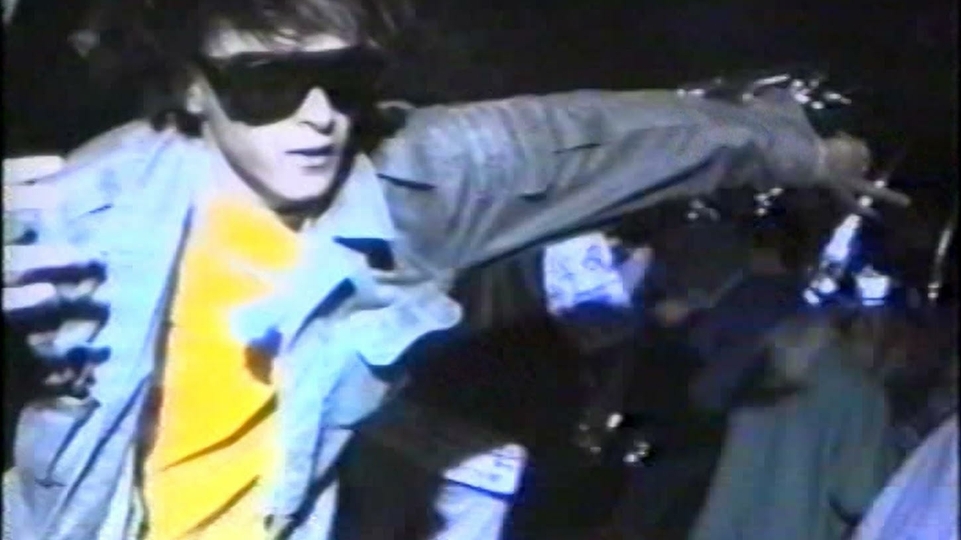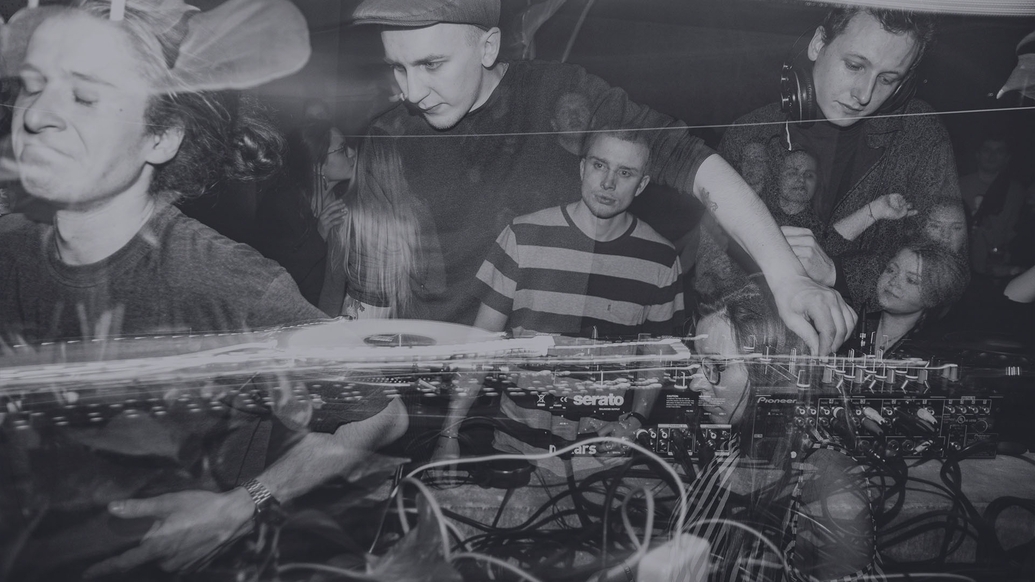
Sea change: exploring the Balearic-inspired beats of Poland’s Baltic coast
A new wave of Polish electronic artists are drawing from the country’s musical past and the atmosphere of its Baltic coast to create a fresh take on Ibiza’s Balearic beat. Ben Murphy speaks to artists, promoters, DJs and labels about this unique scene's development
“It’s all in the sea, innit? One of my friends was saying, back in the ’90s, ‘If the going gets tough, well, you can always go to the beach’,” says Maciek Sienkiewicz, boss of the Father And Son Records And Tapes label, pondering the origins of a new wave of Balearic sounds coming out of Poland. “In a way, music from the coast tends to be a bit more relaxed than the heavier, industrial sounds of Warsaw, Łódź or Kraków.”
In the last few years, there’s been an increasing number of Polish producers creating serene electronic music partly inspired by Ibiza’s original Balearic sound. The eclectic style cultivated by DJs like Alfredo and José Padilla in the ’80s, at Ibiza clubs like Amnesia and Ku — and later codified into a genre of its own — is threaded through the works of artists across Poland. In their tunes, evocative house pianos, chugging disco basslines, wistful downtempo beats and billowing synths caress the ear like a coastal breeze. This Balearic spirit is present in the music of Serasso: his track ‘Plazza’ on the Transatlantyk label is all horizon-gazing pads and bubbling dream house rhythms, while ‘TR1’ is a luscious cosmic disco sundowner warmed by fading rays and glorious ’80s melodies.
In 2020, Møzaika released the horizontally chilled ‘Silver Tide’ album on Public Possession, replete with lapping waves, balmy synth and evocative keys. Then there’s Jazxing, whose beautiful debut album ‘Pearls of the Baltic Sea’ was released in September on the Higher Love label, and stirs fragments of house, post-punk, dub and jazz into a diverse and decidedly Balearic recipe.
Dig deep, and there’s a huge amount of this particular Polish electronic sound — and while it varies considerably in style, there’s a buffeting, coastal quality in much of it that chimes with Balearic beat. Described variously as “Polo house” or “Baltic beat”, no name has stuck — but there’s something that sets this music apart from its Ibiza-born parallel, perhaps owing something to the cooler temperatures and mercurial weather conditions of the Baltic coastal cities of Gdańsk, Sopot and Gdynia. There’s a nostalgia here; a uniquely bittersweet or melancholic flavour.
“It’s like Balearic music, but with a bit of cold wave in there, too,” says Mateusz Filipiuk of Gdańsk’s Jazxing. “Maybe it’s about the weather here. One day you have 30 degrees, and the next day it’s like London weather and it’s raining through the whole day. It’s really mixed.”
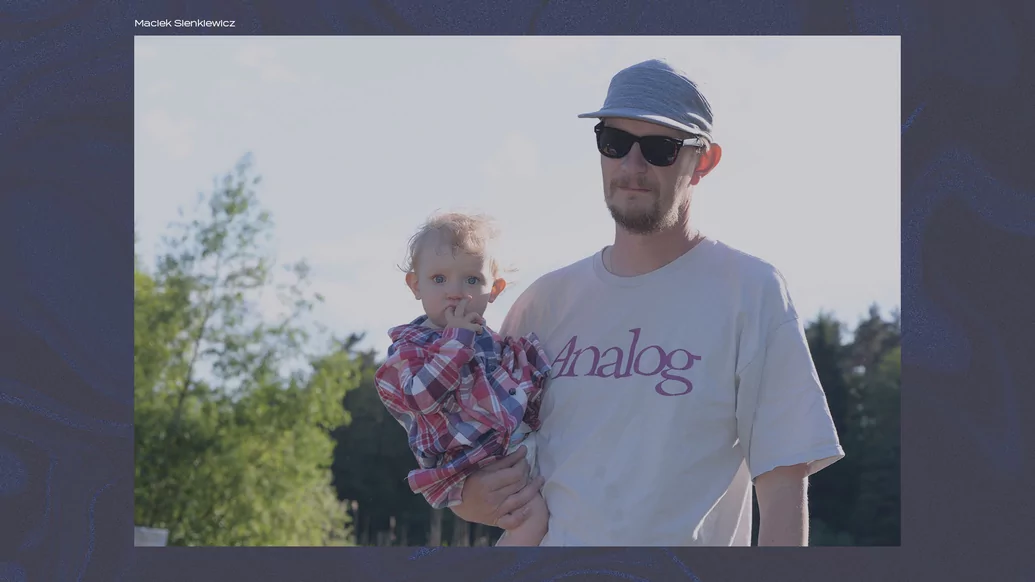
Balearic beat crystallised in 1980s Ibiza amid the house music explosion, with older records by Richie Havens, Fleetwood Mac, The Cure and Carly Simon mixed with newer electronic tracks to create a powerfully emotive and escapist dancefloor recipe. Duplicated by a host of British DJs back in the UK, the scene eventually produced its own Balearic beat records, by the likes of A Man Called Adam, BBG and The Grid. At this time, Poland was creating lesser-known classics of its own, which contain some of the same sounds and atmospheres.
Under-appreciated, or just hard to get hold of during the Communist era, rare Polish gems have since been unearthed and reissued. Maciej Zambon’s The Very Polish Cut-Outs label released the ‘Echo Wielkiej Płyty (Rare, unreleased & forgotten electronic music from Poland 1982-1987)’ compilation in 2020, some of which could easily sit alongside the obscurities featured in the sets of Alfredo. Meanwhile, Ptaki (Jaromir Kamiński and Bartosz Kruczyński, the latter best known for his work as Earth Trax and The Phantom) made an online mix called ‘Baltic Beat’, collecting more of these forgotten nuggets. Kruczyński also made a new age ambient album under his own name, with the ‘Baltic Beat’ title.
“The online mix collected jazz fusion, electronic and blues records that reminded us of the Balearic sound,” Kruczyński says. “But they all sounded a bit off — a lot of them had limitations (cheaper instruments or production compared to their Western counterparts), and yearning (like titles inspired by faraway countries: ‘Maracuja’, ‘Seszele’, or typed in English like ‘Dancing In The Wind’ and ‘Can’t Get Your Love’). It never was a conscious genre, but the pursuit of the deeper, genre-free chill-out sound formed ties between a lot of people involved.” “I coined the term Baltic beat as an inside joke back in 2014 — a kind of Polish/Northeastern European answer to Balearic beat,” Kamiński adds.
Delving into recent Polish musical history galvanised a generation of producers from the country. In the early 2000s, musicians like Skalpel, a Ninja Tune-signed duo from Wrocław, and Noon, whose ‘Bleak Output’ album is a sublime but mostly unknown trip-hop classic, began to sample earlier Polish records. “I wanted to dig for Polish samples, I thought it made more sense than sampling American funk and soul records,” Noon says. “Everyone else was doing that.”
This sampling would later manifest in The Phantom, Ptaki and Pejzaż records; Ptaki’s ‘Warsaw’ married plangent guitar slivers with bumping bass and a stately disco beat to result in an unmistakably Balearic atmosphere. The lineage is evident in the current wave of Polish electronic music, too.
“Noon, Skalpel and Smolik started treating earlier decades as a legacy (either by sampling or producing for others) rather than neglecting them because of their Communist, outdated connotations,” Kruczyński says. “A lot of producers from the ’90s are now mastering and mixing engineers (like Noon or Ptaki Cichy from Skalpel), and are helping to shape the current sound. The third wave of producers was very conscious of the past (often re-editing older records), and influenced by growing up with club music, with labels like Transatlantyk, Father And Son Records And Tapes, and Polena.”
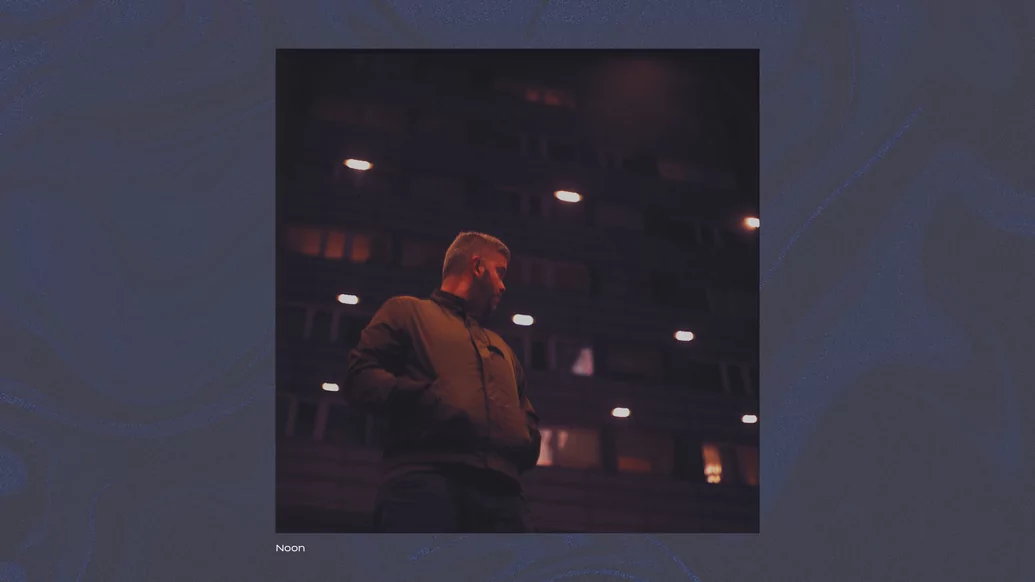
Between his two labels — the now discontinued Transatlantyk and the still-active The Very Polish Cut-Outs — Maciej Zambon has been a key advocate of Poland’s bubbling underground scene. While he dismisses the Baltic beat term (“for me it’s a fake genre name”), he’s passionate about the leftfield dance music emanating from the country. He points to artists like Holiday 80 — whose recent, aquamarine re-edit of Formacja Nieżywych Schabuff’s ‘Centrum Wynalazków’ draws a deliberate line between Poland’s experimental past and its current upsurge of sounds — and producers like Grażyna Biedroń, House Of Lucy and ETNOBOTANIKA as all producing Balearic-tinged gems.
An artist whose own musical mission has closely tracked from sampledelia to more Balearic sounds is Daniel Szlajnda. From the city of Stalowa Wola, he began his career as a hip-hop DJ, before getting into electronic dance music and making wonky boogie and Floating Points-esque house for Warsaw’s excellent U Know Me label. More recently, his music has drifted into sedate ambient waters. His 2020 album ‘Komorebi’ is all plangent bleeps, aquatic pads and sparkling melodies; look it up on YouTube, and you can see him perform the record live in its entirety by the waterside in Gdynia, under overcast skies and with a crowd of listeners lounging in the background.
“The hip-hop mentality of crate-digging drew my attention to disco and other forms of dance music, which I found far more interesting than hip-hop beats, at least in terms of composition and sound design,” Szlajnda says of his musical shift. “What fascinates me about ambient and minimal music is that the fewer elements it has, the harder it is to write it in such a way that it is still dynamic and interesting. I took it as a challenge, and I thought it would be a nice break from the more intense and kick-driven stuff I was playing in clubs.”
For Szlajnda, the idea of this Balearic sound, whatever its genre tag, is a real thing. “I had that in mind when recording ‘Komorebi’, but back then I don’t think I knew what the Baltic beat really was. I believe the term was first introduced as a joke with reference to Balearic beat, but it quickly grew to become something more than just a funny play on words.”
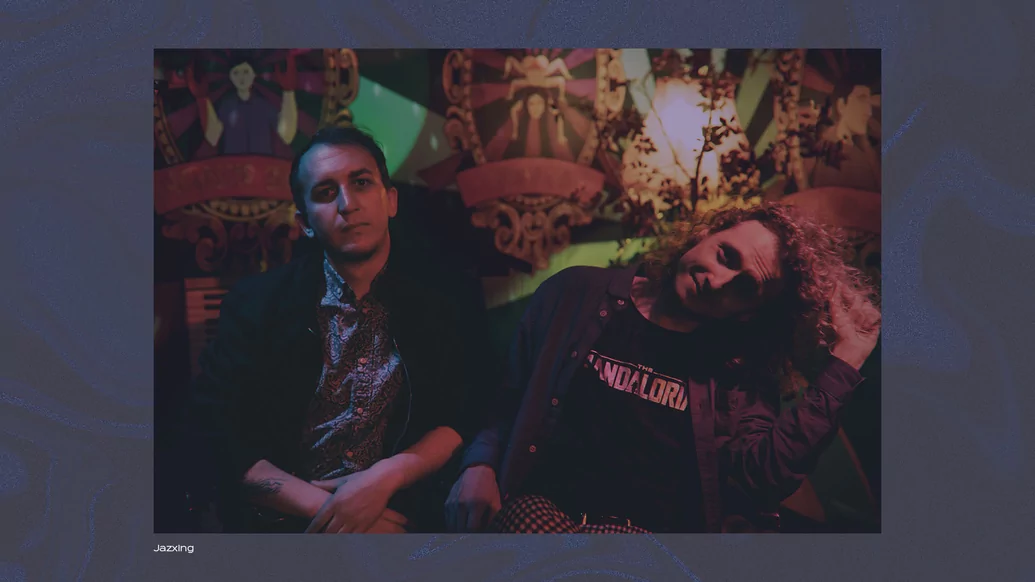
One of Poland’s most vital new acts is Jazxing (pronounced ‘jacksing’). Jakub Sautycz and Mateusz Filipiuk hail from the Baltic coast city of Gdańsk; releasing EPs and tracks since 2016 on labels like Polena, Transatlantyk and Father And Son Records And Tapes, their debut album ‘Pearls of the Baltic Sea’ also seeks to celebrate the country’s illustrious musical contributions — albeit in a different, less sample-based fashion. The host of guest musicians, including jazz vibraphonist Paweł Nowicki, singer Kamil Kozłowski from the band Van Cyklop, and saxophonist Michał Jan Ciesielski, provides a snapshot of the musically diverse talent in Poland.
“We named the record ‘Pearls of the Baltic Sea’ because there are a lot of great musicians that cooperated with us during the recordings, that we are really grateful for,” says Filipiuk. “We wanted to name them as the pearls, to show that there are a lot of great musicians here.” On the album, ‘Neu Nostalgia’ has spidery post-punk guitars that skitter across a slow and bittersweet disco chug, while ‘Artifacts’, with its gentle breakbeat and emotive vocal, opens out with irresistible Balearic house pianos.
Meanwhile, ‘Shoegaze Dub’ is positively horizontal, a sunset gem with bubbling bass and Cocteau Twins shimmers. Drawing influences from Andrew Weatherall to Bryan Ferry, Siouxsie & The Banshees, Jah Wobble, Crazy P, Brian Eno and the Claremont 56 label, Jazxing have a strong connection to Balearic music, but consider what they make to be distinct “We have some similarity, but our sound is more specific,” Sautycz says. “It’s a little bit post-punk, a bit dubby, a little bit colder in terms of sound.”
With its field recordings of the Baltic sea lapping against the shore, the album is very much a product of the Gdańsk environment. While the sun can shine brightly in the summer, it can quickly be occluded, lending the coast an occasionally melancholy aspect. This emotional duality is present in Jazxing’s music — and in a good portion of the Balearic sounds that Poland is presently producing.
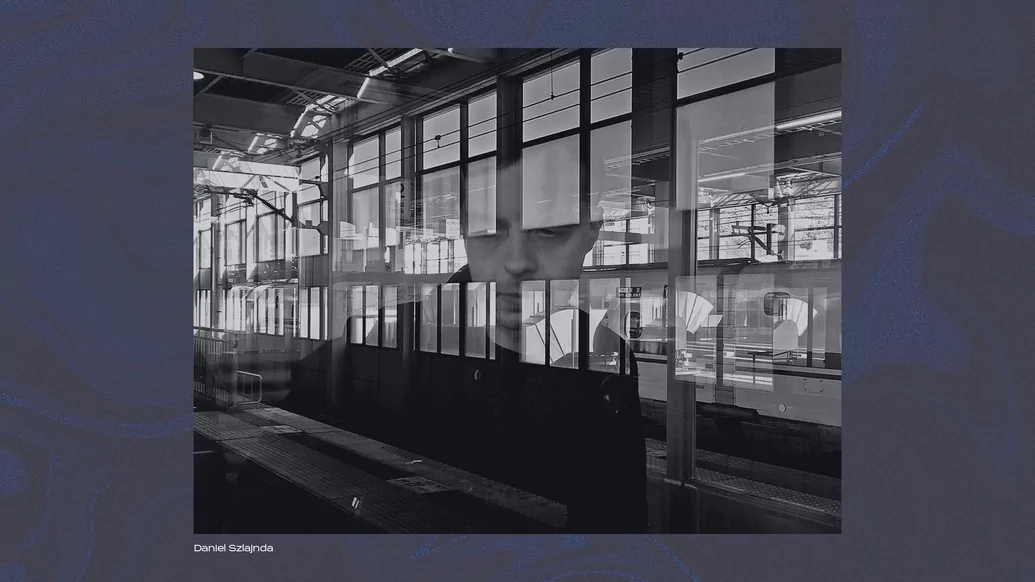
“The Baltic beat is very melodic and fragile at the same time. It feels like the last day of summer. There is something of Polish Romanticism about it” — Daniel Szlajnda
“The Baltic coast is obviously far from a Mediterranean resort sort of feel, but exactly because of this, it’s very audible in the music,” Bartosz Kruczyński says. “A lot of track names are influenced by the coast too, like Ptaki’s ‘Jelitkowo’, Jazxing’s ‘The Coast’, Jaromir Kamiński’s ‘Zaspa Dub’, Das Komplex’s ‘Sand’, Marcin Krupa’s ‘Jeziorna’ and ‘Orłowo’, or older records like ‘A Na Plaży Anna’ (‘Anna On The Beach’) or Voo Voo’s ‘Zielone Liście Palm Błękitne Fale’ (‘Green Palm Leaves Blue Waves’).
“The older Polish music had some melancholy to it,” he continues, “and the same applies to a lot of new music that producers coming from the electronic/DJ background are making. Even though Ptaki’s only album turned out to be a popular summer record, it seemed very gloomy to us. So the concept is the same principle as Balearic music, but it touches on a lot of differences between southern resorts and Eastern Europe, and to some extent between the West and the East too. All the cultural differences are very audible in both older and current music.”
“The Baltic beat is very melodic and fragile at the same time. It feels like the last day of summer,” adds Daniel Szlajnda. “There is something of Polish Romanticism about it.”
“I always said that the majority of electronic music produced in Poland (like by my younger brother Jacek Sienkiewicz) shares a sort of Slavic melancholy, even at its most playful,” says Maciek Sienkiewicz. With his label Father And Son Records And Tapes, Sienkiewicz has provided a platform for electronic artists in the country. Ranging widely in genre — from Lowhitey’s ‘Cold & Hot’, a bittersweet gem of hazy ambience, to Wiktoria Poniatowska’s ‘Queen Of Cool’, an LP of lo-fi electro-pop songs, and Bartosz Kajdasz’s emotive synthscape ‘7 Divided By 6’ — the label’s experimental and freeform ethos nevertheless chimes with the Balearic feeling evident in the work of many Polish artists now.
“The only philosophy is to release the music I like, without much thinking of how it would sell,” Sienkiewicz says. “The thing I still hold on to is the visual side — many of my releases have covers designed by renowned Polish and international visual artists, like Paulina Olowska, Anna Niesterowicz, Mathilde Rosier, Ivo Nikić, and many others. The Teielte record (at one time No.1 on the Juno bass music chart) had a cover photo by another friend, Canadian techno experimentalist Tomas Jirku. “Musically, it’s all over the place — dubby Balearic by Das Komplex, some techno by Universo and Verlake, experimental pop by IWasHomeAnyway, psychedelic electronics by TAMTEN / Fopa or DOBRO, a bass and breaks-heavy debut release by Penera, some ambient, some psychedelic folk music, some jazzy vibes, and most recently a debut album by super-talented 20-year-old Wiktoria Poniatowska.”
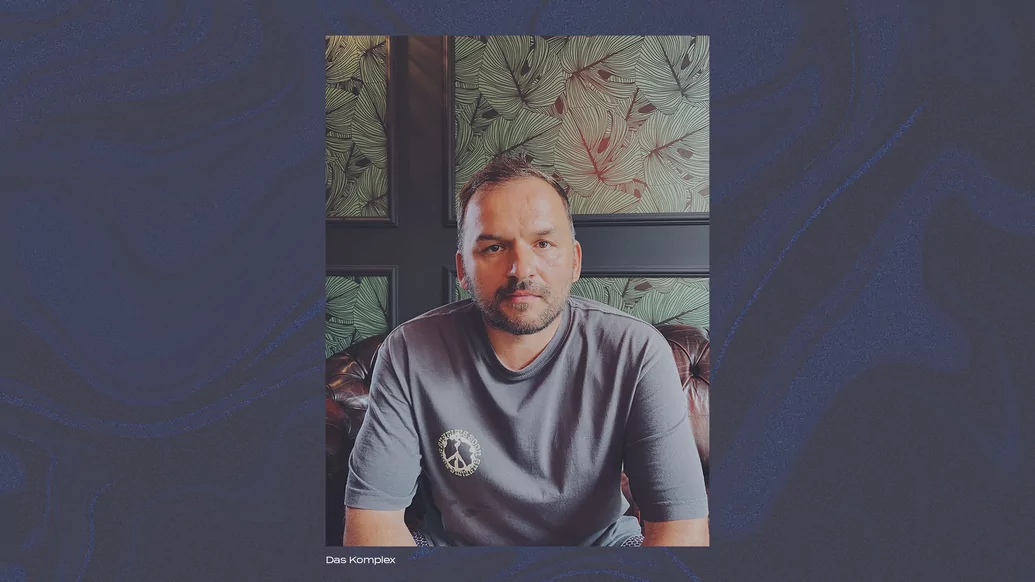
Though the producers and DJs associated with the Balearic sound in Poland are spread across the country, with Bartosz Kruczyński / Earth Trax, Holiday 80, DYYUNE and TAMTEN based in the capital Warsaw, Eltron John in Kraków, and WOSK Sound System and DJ ZISA in Poznań, a good number cluster by the coast. Das Komplex (real name: Marcin Łukaszewicz) is based in Koszalin, a city seven miles from the sea. With releases on Love On The Rocks, Prins Thomas’ Internasjonal, and Catz ’n Dogz’s Pets Recordings, and enthusiastic support from the likes of DJ Harvey, Das Komplex enjoys possibly the highest profile of the newest crop of artists, and his releases span everything from amped-up disco pumpers to more serene Balearic house. His latest EP, the six-tracker ‘Pillow Stories’, includes treasures like the peaktime pianos and live bass of the title track, but flip it, and on the B-side is ‘By The Hand’, a sunkissed mid-tempo cut that mixes funk guitars and cosmic synths, like Kid Creole produced by Lindstrøm.
Łukaszewicz started producing music around 2000, using an E-mu sampler and a Yamaha RM1x groovebox, before teaming up with his friend Jakub Rużyło to become the group Moogy Coast. He began to do his own solo stuff , and then started the Das Komplex project with Emose Uhunmwangho, recording lots of material together. When Uhunmwangho moved to another city, Łukaszewicz continued solo with the Das Komplex name. The coastal environment has always loomed large in his imagination, and the music he makes is intrinsically linked to the sea.
“The seaside has always been a part of me, it is the background of my existence,” he says. “For sure, the waterside aura was a major influence on me and people I grew up with — having fun partying in nearby seaside towns in the ’90s, and still today. Nowadays, I spend more time relaxing by the sea, as opposed to partying until the morning. Although, in the summertime, I take overnight sleeps on the beach sometimes, by myself or with a group of friends, and we sit by the campfire until dawn. Music has always been the context of these meetings and events. Different life situations pushed us towards different musical directions, but eclecticism was something natural. Balearic music largely followed the path I took.”
For Łukaszewicz, the Polish Balearic scene feels like a real thing. He notes that the artists associated with the sound are often based around the coast, but that their popularity is — at the moment — mostly in the rest of Europe. “It seems to me that we can call it a scene of artists living close to the sea, tending to create a chill and lazy variety of electronic music,” he says. “Locally, in Szczecin, we have a dynamic event collective called Local Disco Allnighter. DJs and producers associated with them also release music — Speek and Tropiki, for example. On the other side of the Polish coast, in the Tri-City (Gdynia, Sopot, Gdańsk) there is also a lot going on. Jaromir is currently preparing his solo album. He also runs his Polena label, which focuses on the above-mentioned vibes.”
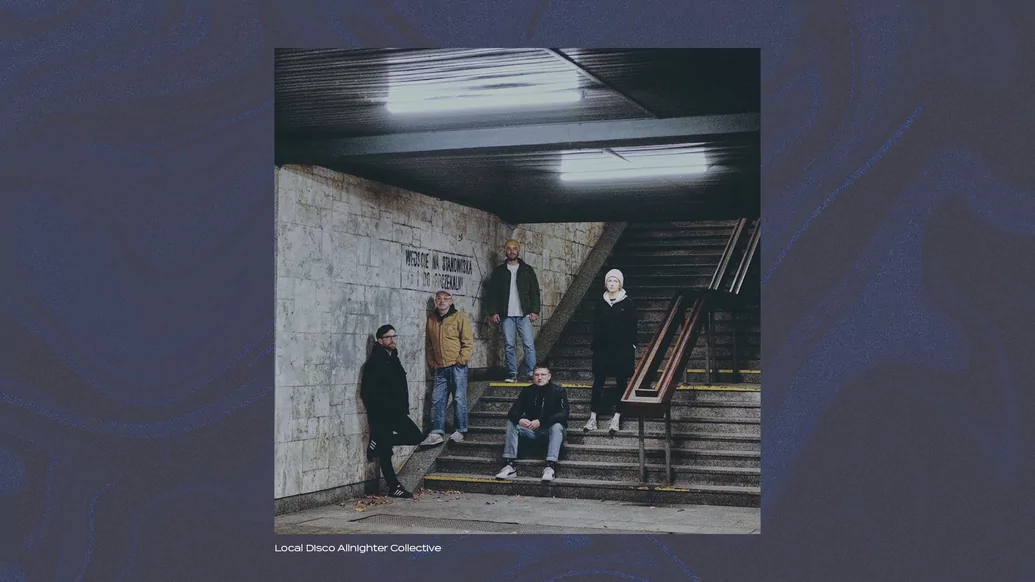
You don’t need to be from London to make a good jungle/d&b track anymore. The same with Balearic — it became global, of course on this small, underground scale” — CLVN, local disco allnighter collective
Local Disco Allnighter is one of the crews running Balearic-focused events in Poland, a trend which is starting to spread. Their music policy is varied, reflecting a sea change in dance music tastes there.
“I started Local Disco Allnighter a couple of years ago, because I was a bit tired with the domination of mindless, hard techno here,” co-founder CLVN (aka Maciej Gorzelak) says. “I remember I was missing the parties with some groovy, soulful music in our city. At first, we were playing and promoting all this post-dubstep sound (Joy Orbison and Boddika can sometimes be heard at our parties even now), then gradually we were moving more towards the funky/disco/house sound thanks to the people joining the collective. Today, there are five of us: Kasia, Speek, Tropiki, Człowiek and me, CLVN.
“The music policy is: everything goes, as long as it is groovy and funky,” he continues. “From some old disco tracks to the Balearic sound, from some crazy edits to house. We don’t mind some electro or groovy techno too.”
To CLVN, the cultivation of a Balearic scene in Poland is an indication of how globalised, and less dependent on place, music has become in the internet era. “We don’t think that the Balearic sound is different here,” he reckons. “We live in the globalised world, and we can see that different genres of underground music are being produced in every part of the world. You don’t need to be from London to make a good jungle/d&b track anymore. The same with Balearic — it became global, of course on this small, underground scale.”
With Speek and Tropiki releasing their own coastal creations on The Very Polish Cut-Outs and U Know Me respectively, the Local Disco Allnighter collective are integral to this blossoming musical movement. But they’re quick to recognise that the sound isn’t going to challenge the mainstream any time soon. “Most of the people you mentioned are our friends,” adds CLVN. “Sometimes we play parties together and yes, somehow we feel a part of this scene. On the other hand, we don’t think that this scene is something that is going to take on the main stages soon at electronic music events in our country.”
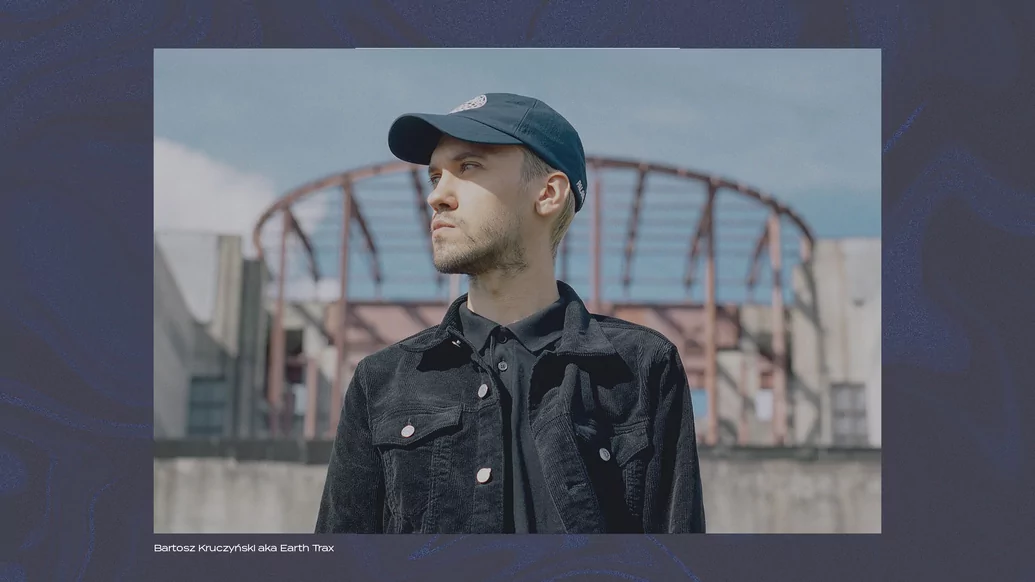
While techno still reigns in Poland, according to Jazxing, more venues are programming nights with this slower-tempo material, including “Ulica Elektryków, Plener 33, Ziemia, and 100cznia” in Gdańsk, “Carnivale Bar” in Gdynia, “Tanz Bar and AFTER EGO” in Szczecin, “Jasna 1 and Miami Wars” in Warsaw and “Rewiry, Dom Technika and Kisielice” in Poznań, as well as “Recepcja” in Wrocław. Jazxing have their own club-night, Gdańska Szkoła Disco. “I think for sure there are a lot of events with this kind of music, more and more,” Mateusz Filipiuk says. “In a couple of years’ time it will be a lot bigger, I think.”
Why this music is growing in Poland is open to interpretation, though Das Komplex believes it might be an escapist response to the right-wing populism and authoritarian nature of the government there. “We certainly have a lot more ‘modest’ history of club music, and no club culture origins,” he says. “Maybe it’s a determination in expressing our emotions. Today, we live in hard times. I would never have thought that one day I’d be witnessing a war in a neighbouring country [Ukraine]. Poland has an extremely Catholic government, and society is conservative. Music was, and still is, a way of escape. We are very emotional about it.”
Whatever the reason for its newfound popularity, there’s a demand for this Balearic sound, both at home and abroad. Das Komplex has a new album coming on Prins Thomas’ Horisontal Mambo label under his Moogy Coast moniker; Jazxing have a forthcoming EP, remix collection and a live show they’re working on; Daniel Szlajnda’s new album ‘Order In Chaos’ is forthcoming on U Know Me; Jaromir Kamiński has a new, sample-free album dropping on Polena; and Bartosz Kruczyński has a fresh seven-inch single under his Pejzaż moniker on The Very Polish Cut-Outs.
“Without a doubt, more and more of the music I listen to comes from Poland, and that’s very refreshing in a sense,” Szlajnda says. “Surprisingly, the pandemic has helped to unite the scene a little bit.”
“Things look promising, with more parties and more releases in the future,” adds CLVN. “We definitely played more this summer, both at our events and where we were invited.”
“It’s not something that people are used to yet, because they don’t really know this kind of style very well,” Mateusz Filipiuk says, “but the popularity is growing — definitely.”
To accompany this feature, Bartosz Kruczyński has recorded an exclusive mix of tracks that encompass the wide-ranging sound of Baltic beat. Check it out, alongside its tracklist, below.
Tracklist:
Ptaki ‘Jelitkowo’ [Transatlantyk]
Jazxing ‘Vijnana’ [Higher Love]
Moogy Coast ‘Keep On’ [Horisontal Mambo]
Noon ‘Why Be Good?’ [Nowe Nagrania]
Meeting By Chance ‘Distance (In Milimeters)’ [self-released]
Jaromir Kamiński ‘Moment’ [Polena]
Mozaika ‘Cabana’ [Public Possession]
No Limits ‘Mama'Lo’ [GAD]
Sławomir Kulpowicz ‘Song for Mohindar (Maciek Sienkiewicz Cut Out)’ [The Very Polish Cut-Outs]
Eltron John ‘Zadowolenie’ [S1 Warsaw]
Jaromir Kamiński ‘Już Noc (Jazxing Remix)’ [Polena]
Flaner Klespoza ‘Świat prastarej i wielkiej kultury’ [Nagrania Somnambuliczne]
Slavic Kulpowicz ‘Fire’ [Mantram Collection]
Moogy Coast ‘Koherencja’ [Public Possession]
Niemoc ‘144p (Botanica Cold Cave Rap Remix)’ [Seszele]
Marcin Dymiter ‘Wyspa Sobieszowska’ [self-released]

